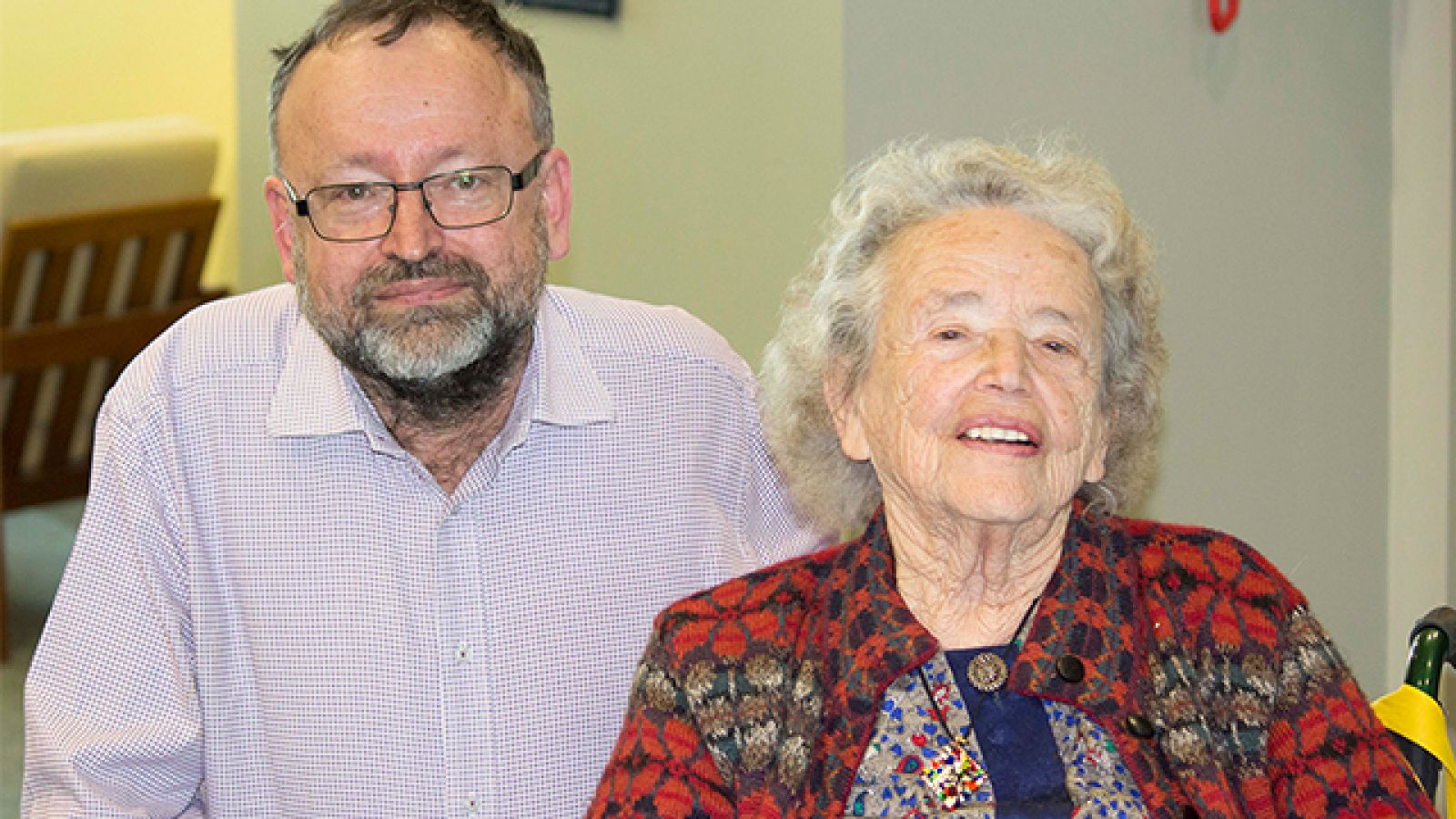ANU celebrates a life’s work in languages

Luise Hercus and her son Iain Hercus.
“Turning 90 really is pretty awful,” Dr Luise Hercus began. “But it’s got a few advantages because I was around in the early 1960s and managed to record people…”
Luise, who retired from the ANU in 1991 and is now an Honorary staff member in Linguistics, was speaking at celebration for her 90th birthday and life’s work.
That recording work was one slice of the 40 years she has spent in rural and remote Australia collecting and analysing Aboriginal languages – some at risk of being lost.
Brendan Kennedy, of the Mutti Mutti people from the southern Murray Basin area said: “Back in the early 1960s, [Luise] managed to help track down remaining speakers of our language.
“She made enormous sacrifices and managed to capture our language, which today, we’re so grateful for. If it wasn’t for Luise doing what she did, it would be so much harder for us today to revive our languages.”
Around 60 people crowded into an ANU lecture room: academic staff and students past and present, among other visitors. All had worked with Luise or, like Brendan, been affected by her work. Some joined remotely, sending video messages from the UK and the US. Others travelled from Alice Springs and Adelaide. Brendan and his cousin Jason came from 800 kilometres away.
“But we would travel 10,000 kilometres to be here,” Brendan said.
Professor Nicholas Evans, Director of the ARC Centre of Excellence for the Dynamics of Language, spoke about the incredible coverage of languages Luise achieved.
“Over 30 languages she’s worked on directly herself, many of those we would know little or nothing about without her work,” he said.
“It’s really the personal side of how she goes about working that is the most important,” he continued. “As someone who had to flee Germany because of her Jewish family background, she’s always had a sympathy for outsiders and the fate of deeply knowledgeable and intelligent people marginalised by prejudice.”
Luise was born in Munich, Germany. In 1938, she and her family fled to England. She went on to study languages at Oxford University. She was appointed a lecturer at Oxford in 1948 and a few years later met her Australian husband, a physicist. They moved to Australia in late 1954.
Luise embarked upon her life’s work in the mid-1960s, recording words and sentences in Aboriginal languages of the south-east. She was persuaded by Elders to record their songs, stories and placenames.
At her birthday celebration, Luise received a draft copy of a book that was a tribute to her work. It comprises around 35 new papers set around the themes of language, land and song, and will be published by EL Publishing. One contribution, ‘Travels with my mother’ is by Luise’s son, Dr Iain Hercus. Iain took after his father, forging a career in the sciences. He completed his PhD at the ANU.
“I used to go with my mother every [school] holidays to the outback of Australia where my mum would be collecting Aboriginal languages,” Ian recalled.
“I think she’s a fantastic person.”
Luise, who is recovering from a broken leg, said she’s not giving up yet.
“I’m still working on things, particularly in northern South Australia.”